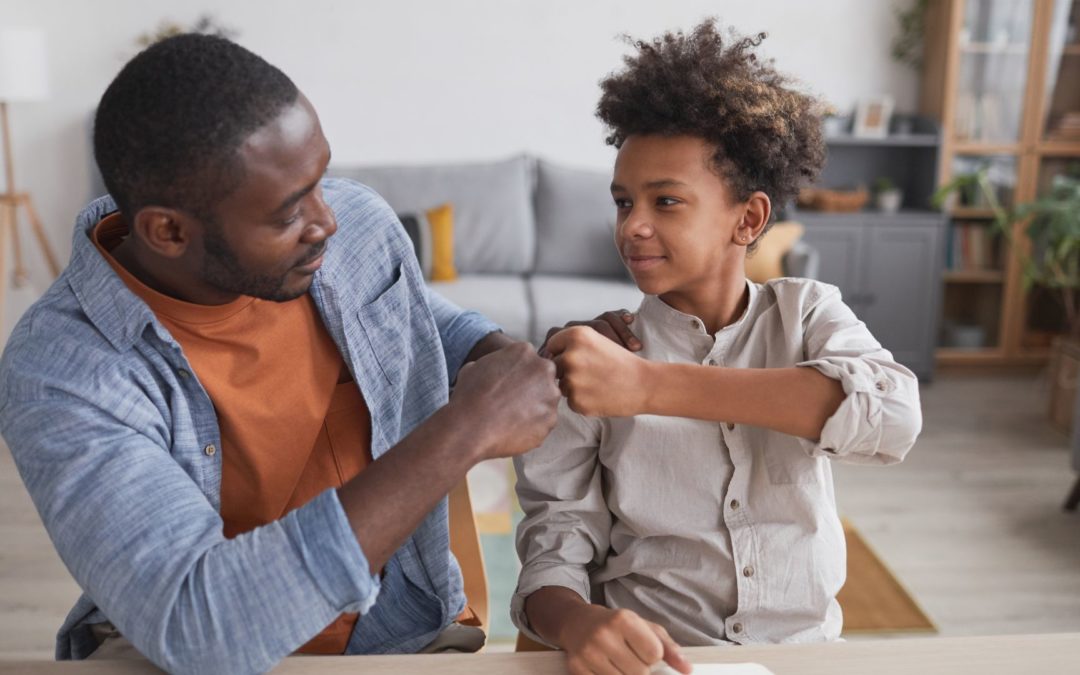‘When my daughter was 17’, writes Michael Gilmore (The Seven Dollar Millionaire) ‘I had a series of frightening revelations that set me on an unusual path, one that resulted in me writing her a modern fairytale, Happy Ever After: Financial Freedom Isn’t A Fairy Tale‘.
Read on to hear why your kids aren’t too young to talk about saving.

The first realisation was that it might be the last full year she spent under our roof.
Assuming she spent a month a year in our house for the rest of our lives, by the end of that year we would have spent more than 90% of the time we were ever likely to spend together. These were precious days.
The second realisation was that she knew nothing about money.
As someone who has worked in finance 20 years this bothered me, but as someone who volunteers their spare time advocating for financial literacy, this bothered me a lot. My volunteering had focused on migrant workers, who I knew had a huge need for this information, but I assumed my privately-educated kid would learn this in school, or just pick it up. It wasn’t happening and wasn’t going to.
But did I want to spend my last year with her giving her lectures about money? Did I want to watch her race off to college glad dad wasn’t talking about savings and investments again?
I hadn’t been a particularly hands-on father
As a sole breadwinner, I would estimate that my wife probably did 99% of parenting, and perhaps 105% if you include fixing the things I had mis-taught at the weekend. Hand-on-heart, the only thing I could say I taught both kids was how to ride a bike. Yes, I am literally claiming the bare minimum fathering standard. In a famous family moment, my daughter even learnt her first swear words from her mother: who would have thought that!?
I figured financial literacy could be where I come into my own, but this is no small thing. While global organisations estimate that financial literacy is about 30%, I think they use a spectacularly low bar. One most people with barely functioning maths could step over without noticing. There’s minimal real financial literacy out there.
Like this: do you know how to calculate that you are truly financially independent, and might never need to work for money again?
That’s the kind of thing I wanted my daughter to know, because I know, from practice, from my own life and from friends who have achieved this, just how empowering this is. It’s not about retirement, it’s about chasing dreams, about independent, conscious living, moving towards goals you choose. I couldn’t think of anything better to give her at 17. I just knew it wouldn’t work as a series of lectures.
So I wrote her a book.
I got up early every morning to get the first draft done, following a plan that would give her a “mission” to become financially independent, talking about the basics of Money, Income, Saving, Spending, Investing, Owning and starting Now (yes, MISSION). I tried to make sure we just covered the basics, that on each subject she would know enough to take the first few steps, and be confident to venture forwards, but not to go so deep that it would confuse her.
She became the first beta-reader and editor of the book, telling me where I had lost her, where I had slipped into dreaded financial jargon or used too many numbers. This was vital, because the goal wasn’t for me to tell her what I knew: it was for her to learn what she needed, and so her reactions were always right. If she was bored, it was my fault.
And slowly, from this structure and process, a theme emerged. About how, when she was little and I read her bedtime stories, I had always hoped to write stories for her myself. Fairytales about talking frogs, about going into the woods, perhaps about unicorns or giants. But because I had been so busy when she was younger I had never done it.
Instead, it had to wait until she was in her teens that I could write her this different fairytale, about financial independence, about how people think they will be saved by princes, or lotteries or governments, while in reality they can take care of themselves with a few simple steps.
What I was giving my daughter was the oldest fairytale of all: “how to get out of the woods”. Hopefully, I was teaching her how to do this before she ever even stumbled into them.
And while I would love to get this taught in every school in every country in the world, until that happens, it has to fall to a dad to do this. It could fall to a mum, but they’ve probably got enough on their plate. Even if you’ve been as low-touch as I was, and this is the second thing you teach your children after how to ride a bike, this is for you.
The Fire Movement
The basics are pretty simple. I would suggest looking at the FIRE movement, which stands for “financial independence, retire early” for some of their ideas. While I think the emphasis on retirement is redundant (if you’re independent, you can retire, obviously, but you can also do anything else!) and might not be the most inspiring message for teenagers, the numbers and process are the same.
For “traditional fire”, save and invest until you have 25 times your annual spending in assets, and you needed never work for money again. For “coast fire”, start saving and investing young, and then just work to cover your costs and let your investments compound for you, so you are independent later. For “lean fire”, you save as much as you can, spend almost nothing, and build both a nest-egg and habits that can make you independent in less than a decade.
The younger our kids learn these types of concepts, and the financial understanding that builds towards them, the more time compounding has to work, the more control they can have over their lives. That’s not a fairytale: that’s why we need to teach our kids about FIRE.
About the Author
Michael, the Seven Dollar Millionaire is @7millionaire1 and spoke live with Ian Soars, CEO of Dad.info find their conversation here.
If you enjoyed this article, why not read another dad’s story – click here.









